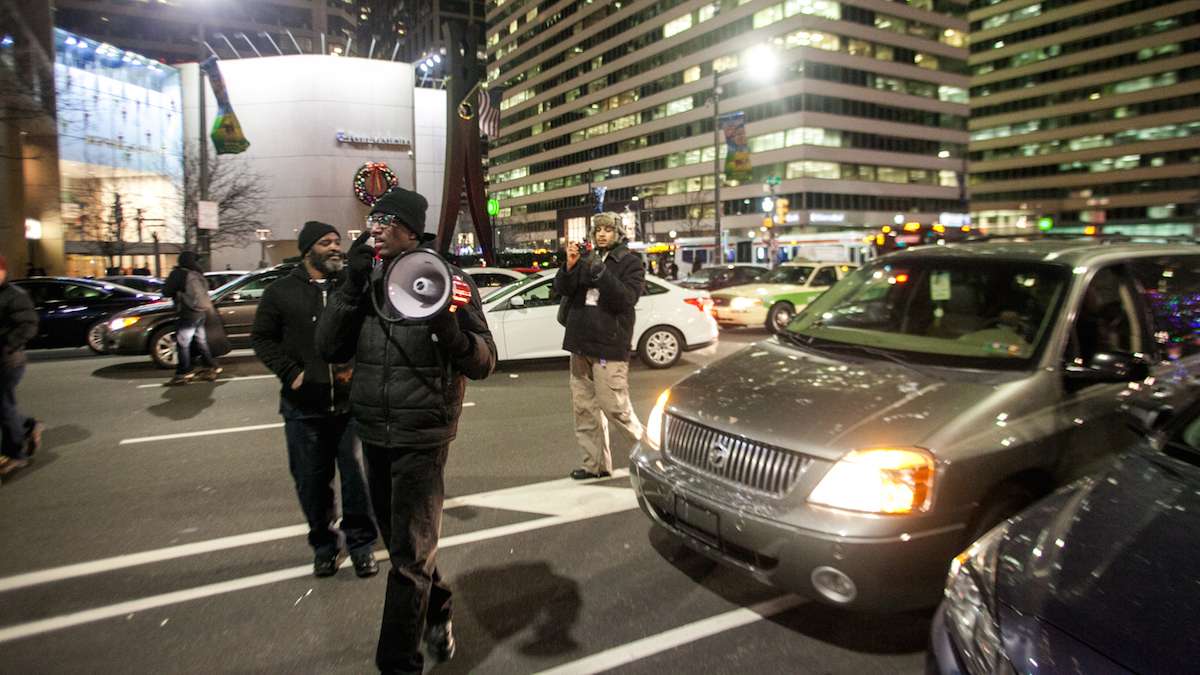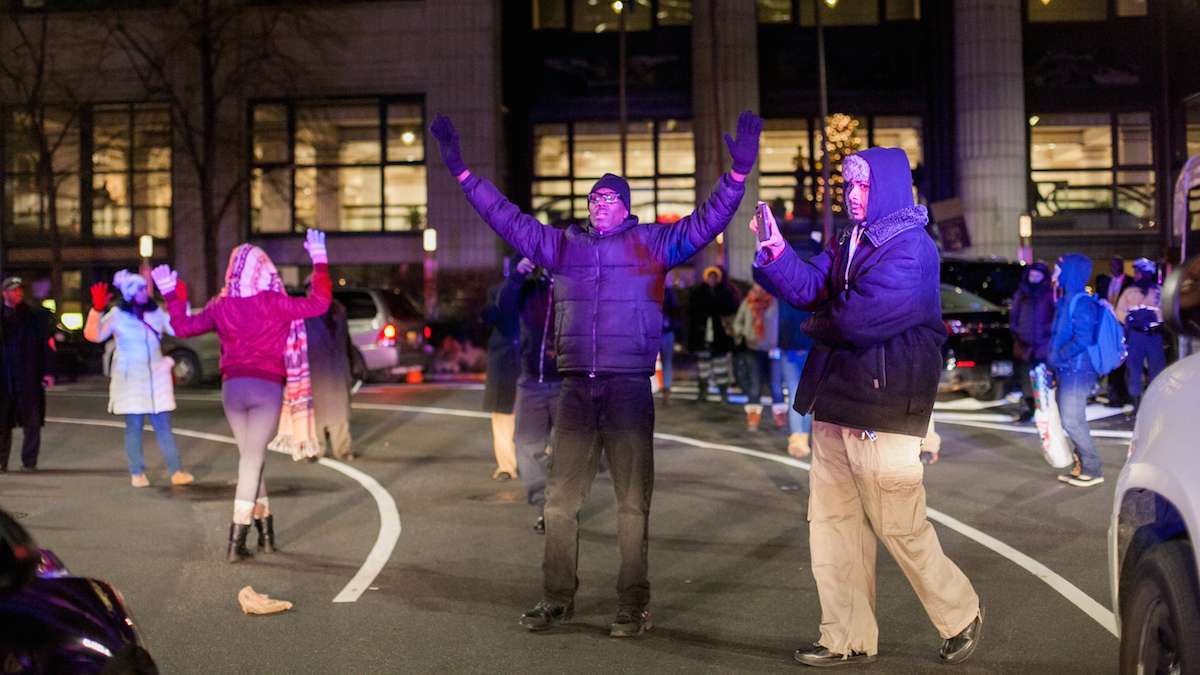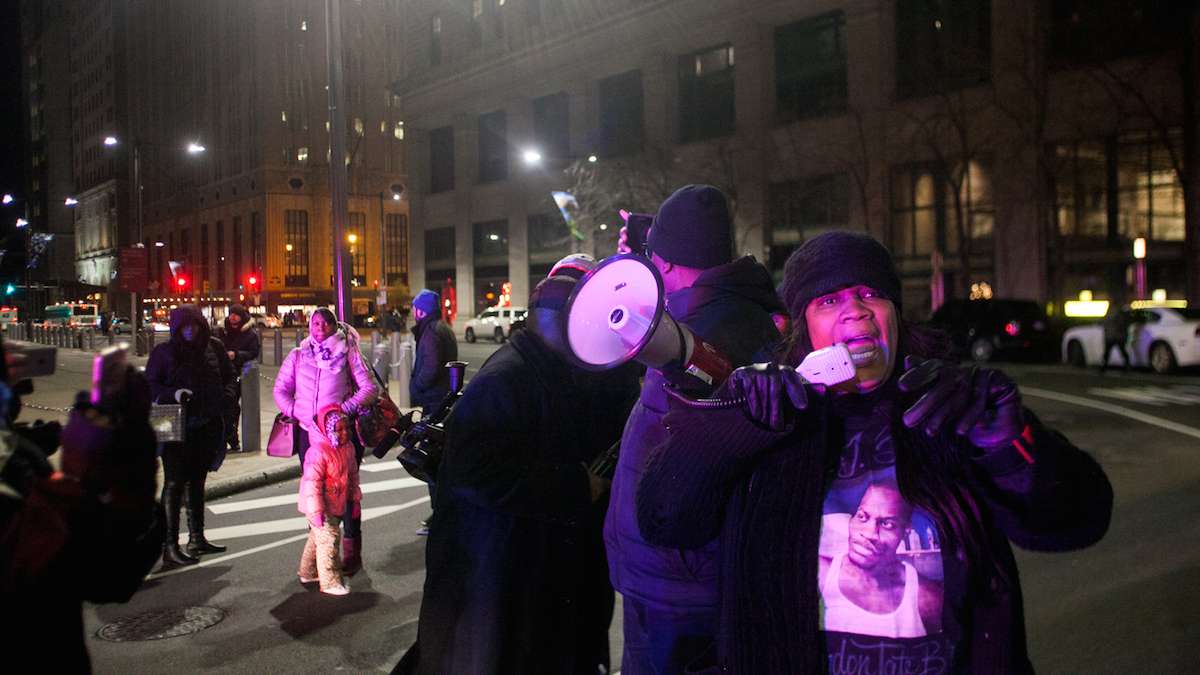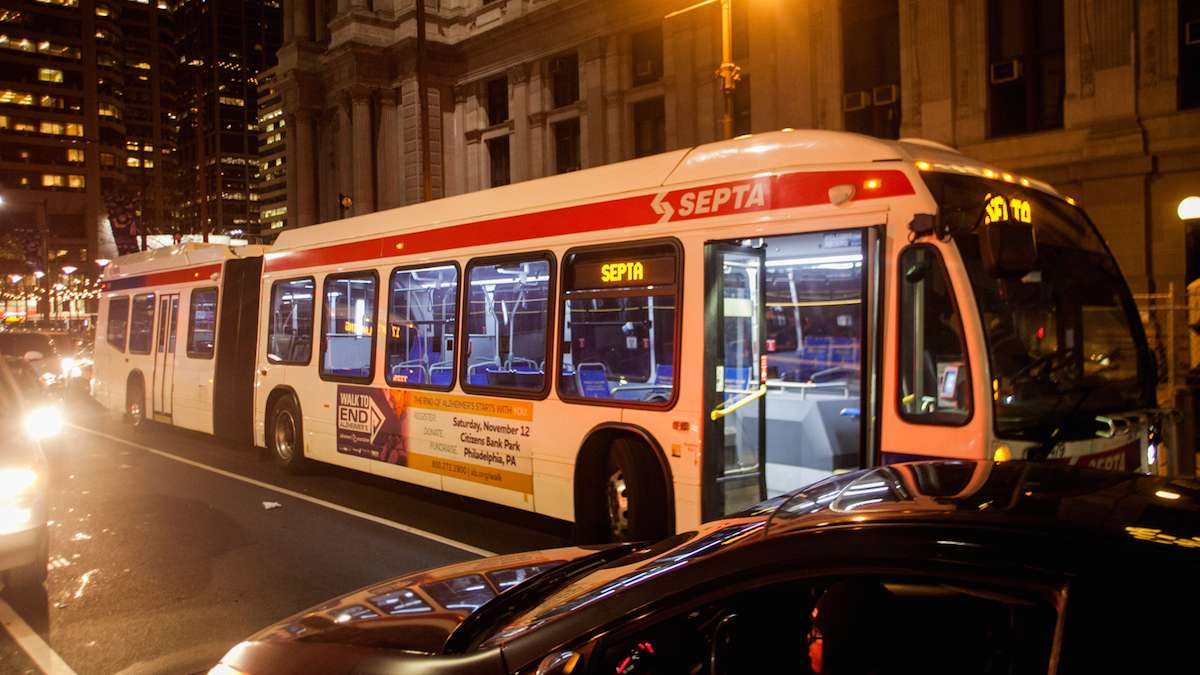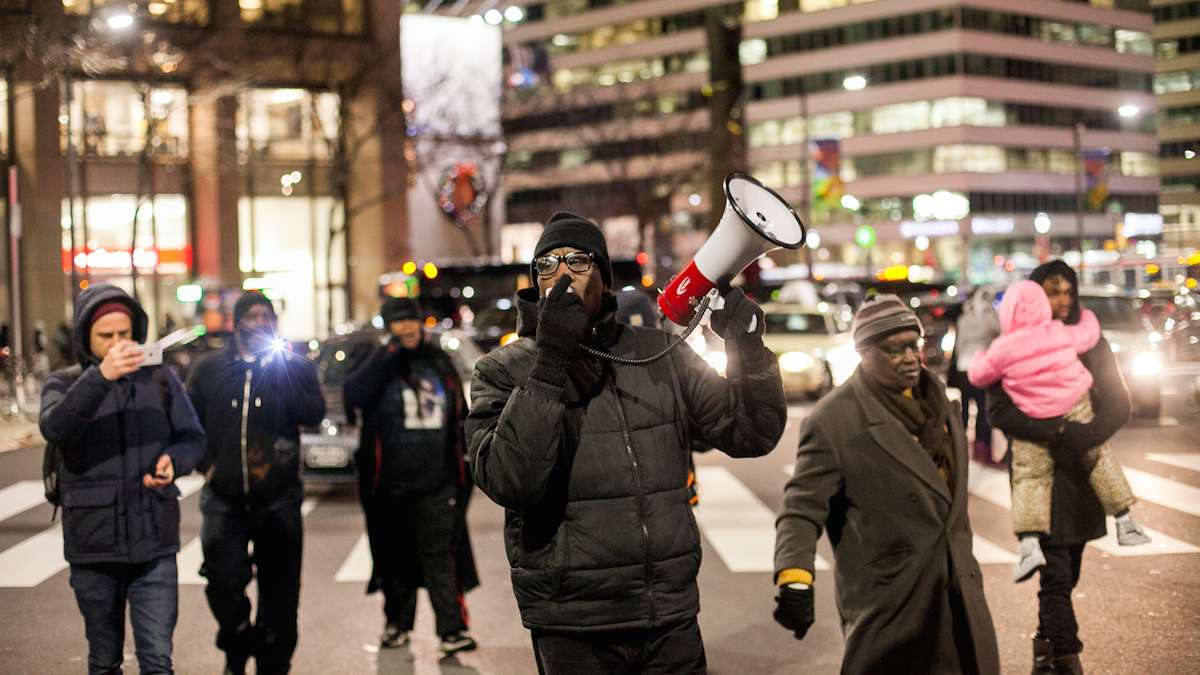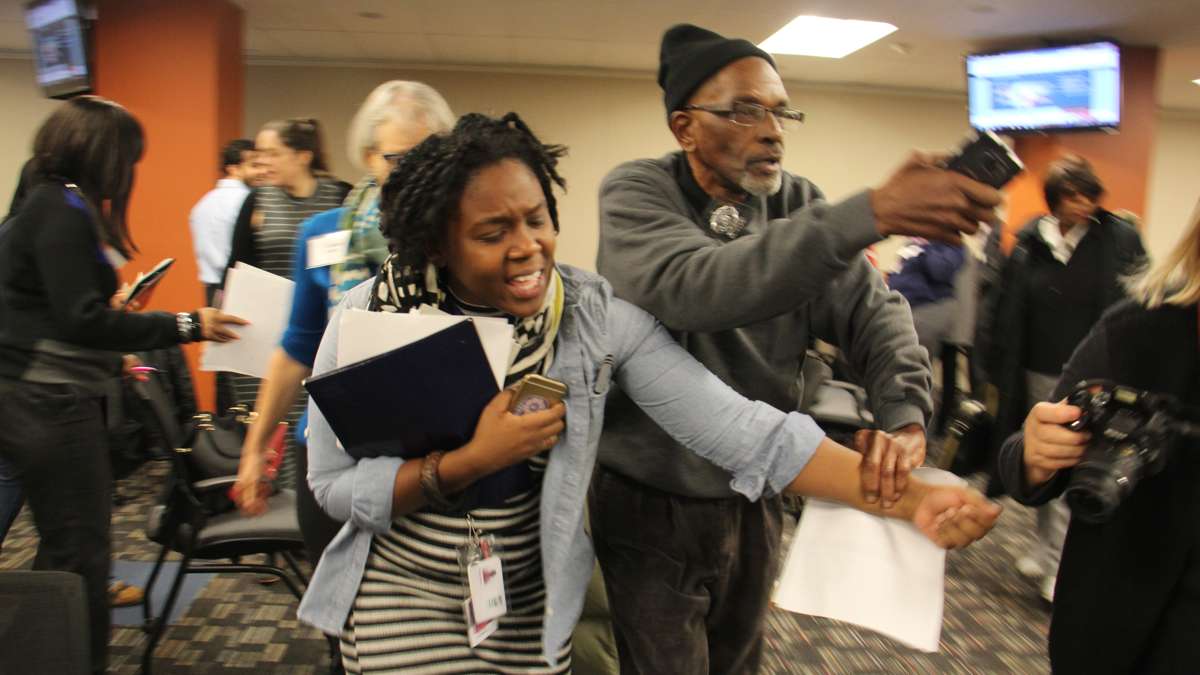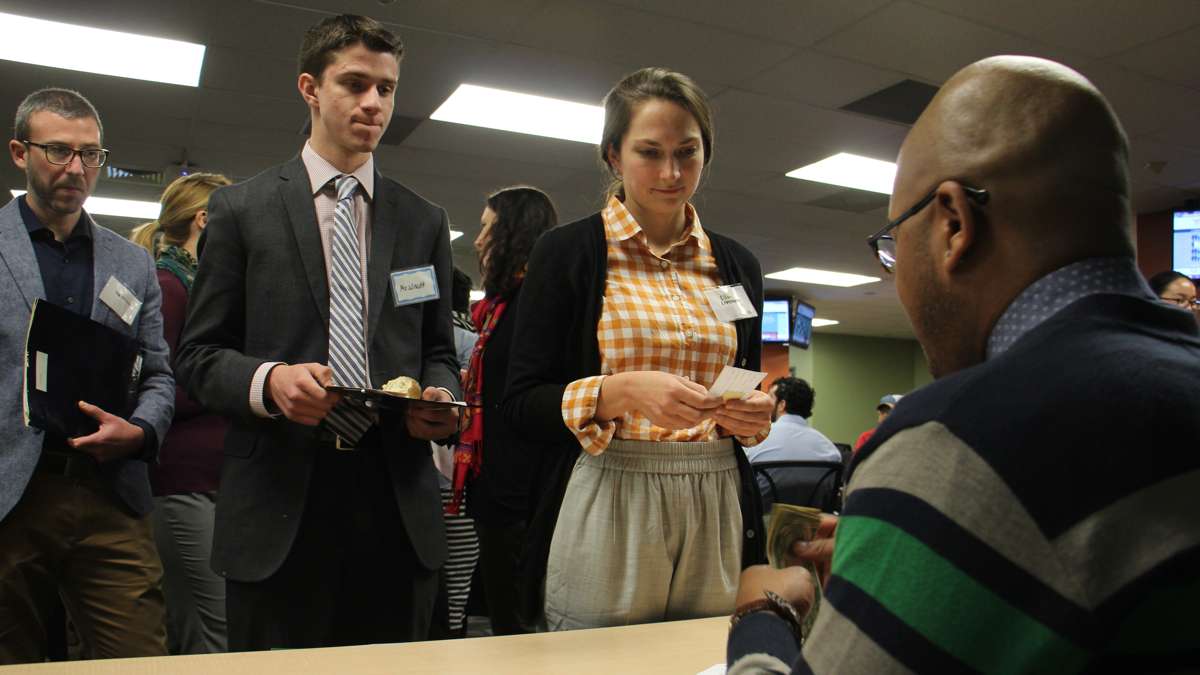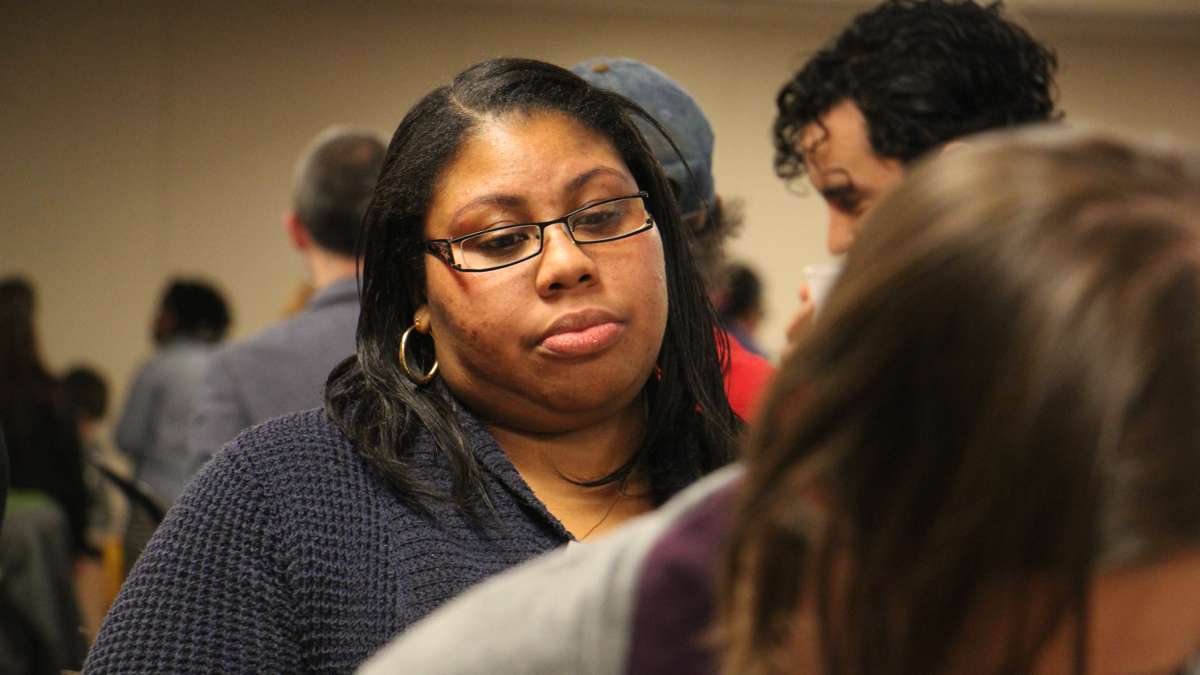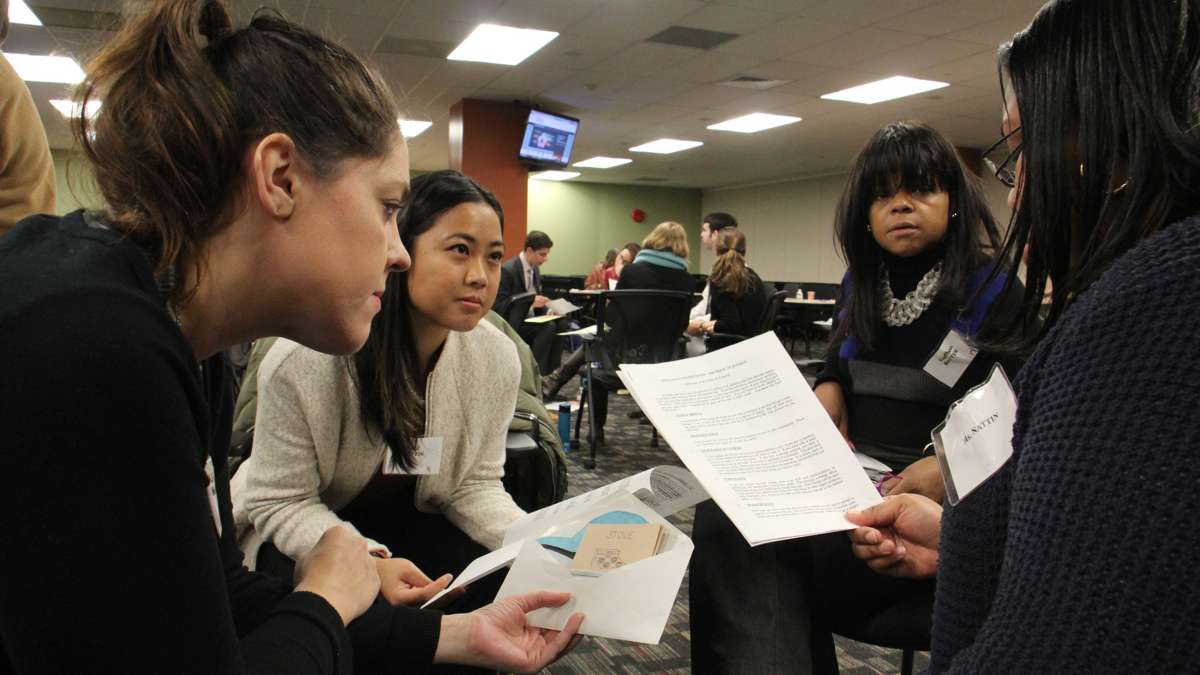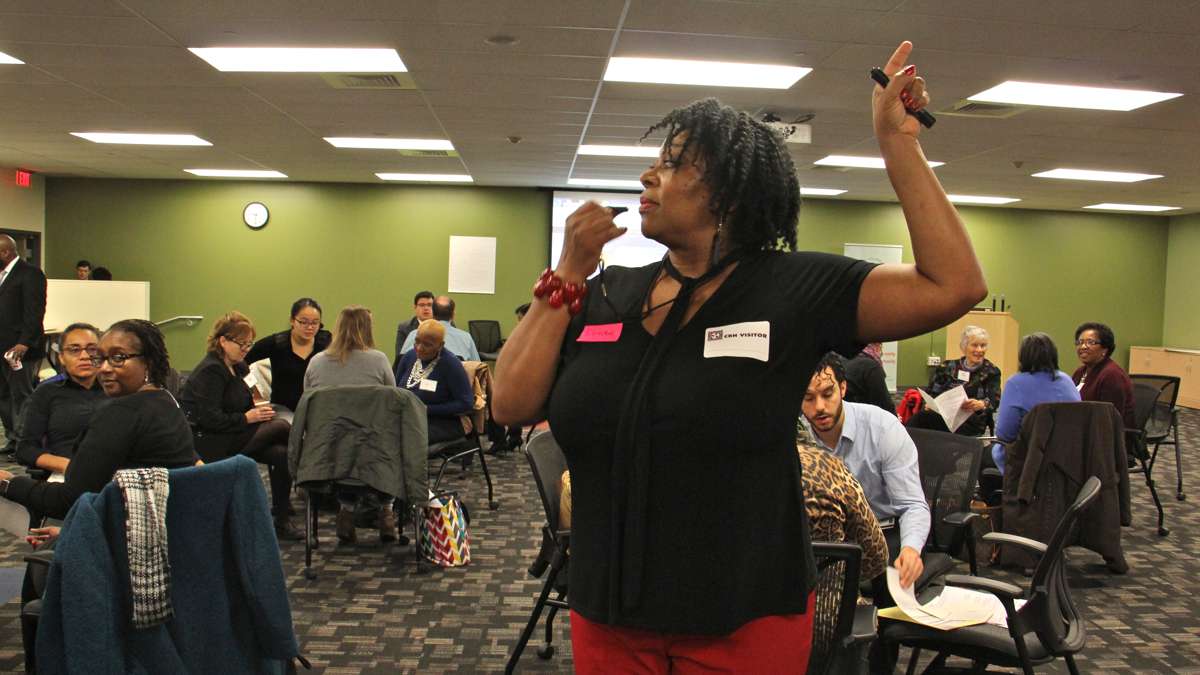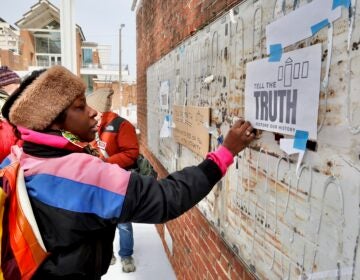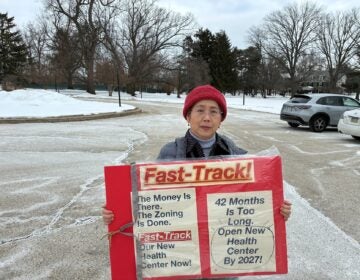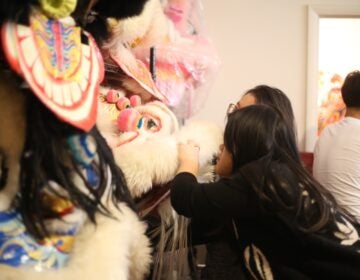Experience of poverty opens eyes, hearts of Philly service providers
ListenOn any other day, Colleen Young is an intake leader for Childcare Information Services of Philadelphia. She works with the county assistance office to help match low-income families with a day care center they can afford.
But on a recent Thursday morning, on the 11th floor of a Center City office building, Young stepped into the shoes of Nancy Nattin, a fictional single mom supporting three kids while earning less than $15,000 a year.
“I take home $278 a week and I get $239 in food stamps. My rent is $335 … minus clothes and miscellaneous expenses. I’m already in the hole,” said Young, calculator in hand.
Young was one of several dozen service providers — people who work with the poor day after day — who packed the conference room for a two-hour simulation exercise organized by The Poverty Experience
Dealing with the fatigue
A big goal of the training, organized by the Mayor’s Office of Community Empowerment and Opportunity, is to remind employees that injecting empathy and compassion into their daily interactions can go a long way when working with people who often feel others don’t understand their struggle.
“There’s a lot of fatigue that folks don’t recognize,” said Mitch Little, office director, before the exercise got underway.
“Folks who do this work do it tirelessly. They are often the first to give of themselves and sacrifice themselves. In doing that, sometimes you forgot,” Little said. “And so, what happens when they’re fatigued? They get a little shorter. They get impatient. Sometimes, thy look for shortcuts because they have so much to do.”
The Nattins — Young and three of her groupmates — were one of roughly 15 “families” in the room.
Their goal: Try to survive a month in the life of a low-income family. They’ve got to keep their house safe, food in the fridge, pay utility bills and loans, and be prepared to deal with whatever curve balls life throws at them.
Minutes after the exercise starts, the Nattins got word that their home was broken into. They’ve lost everything.
“That means our refrigerator, TV, furniture, stove. So I can’t even go to the pawn shop,” said an exasperated Young.
Things don’t get much easier from there. Like millions of families living in poverty, Nancy Nattin doesn’t have a bank account. Instead, she brings her paychecks to a check-cashing place, which charges considerable fees for its services.
(In a 2015 FDIC survey of unbanked and underbanked households, nearly 60 percent of respondents said they didn’t keep a bank account because they didn’t have enough money. Others cited unpredictable fees and a general mistrust of banks handling their money.)
Difficulties snowball
Week to week, there’s always something that isn’t being paid off so something else can be. A loan. Rent. Even when Nattin laid out cash for a bill, she got into trouble after walking away without a receipt.
At the utilities office, Nattin cut a deal because she didn’t have enough to cover the entire bill. She put down $180 against a $213 total and agreed to pass the balance onto the next payment cycle. But without proof of the agreement, she was billed again for the total amount later on in the exercise and has to deal with a shut-off notice.
“It’s difficult because I’m pretty sure she’s dealing with, not only her utilities, her children, her family, trying to feed her home, trying to keep a roof over her head, make sure the kids are going to school — that they have clothing. That’s a lot and she’s a single mother. You know, it’s rough,” said Bernie Lopez with the office, who worked as a bill collector during the training.
By the end of the experience, Young pressed her hand to her head and let out a sigh. It had only been an hour.
“Every time I try to play catch up, I’m knocked back 10 steps,” she said, adding that the exercise gave her a better understanding of the difficulties her clients they face.
“It’s not that they’re frustrated with us per se, it’s just that they’re frustrated with everything they’re dealing with and what they have to go through, and this is just one extra step they have to take.”
Fellow participant Jaclyn Elwell, who manages the volunteer department at the hunger relief organization Philabundance, said The Poverty Experiment opened her eyes to how many departments and agencies people living in poverty interact with just to get through each month. She said she wants to learn more about the city’s landscape of services so she can help people with issues beyond food. At the very least, she’d like to point them in the right direction.
“It’s so easy in a city as large as Philadelphia and with such diverse needs to get siloed in the work that we do. Like, OK, ‘I’m just going to get people food. That’s what I’m going to do and that’s all I’m going to know about.’ But as I saw today, it’s so much bigger,” said Elwell.
The exercise is part of a larger push to make the city’s anti-poverty work more collaborative and personal.
WHYY is your source for fact-based, in-depth journalism and information. As a nonprofit organization, we rely on financial support from readers like you. Please give today.



